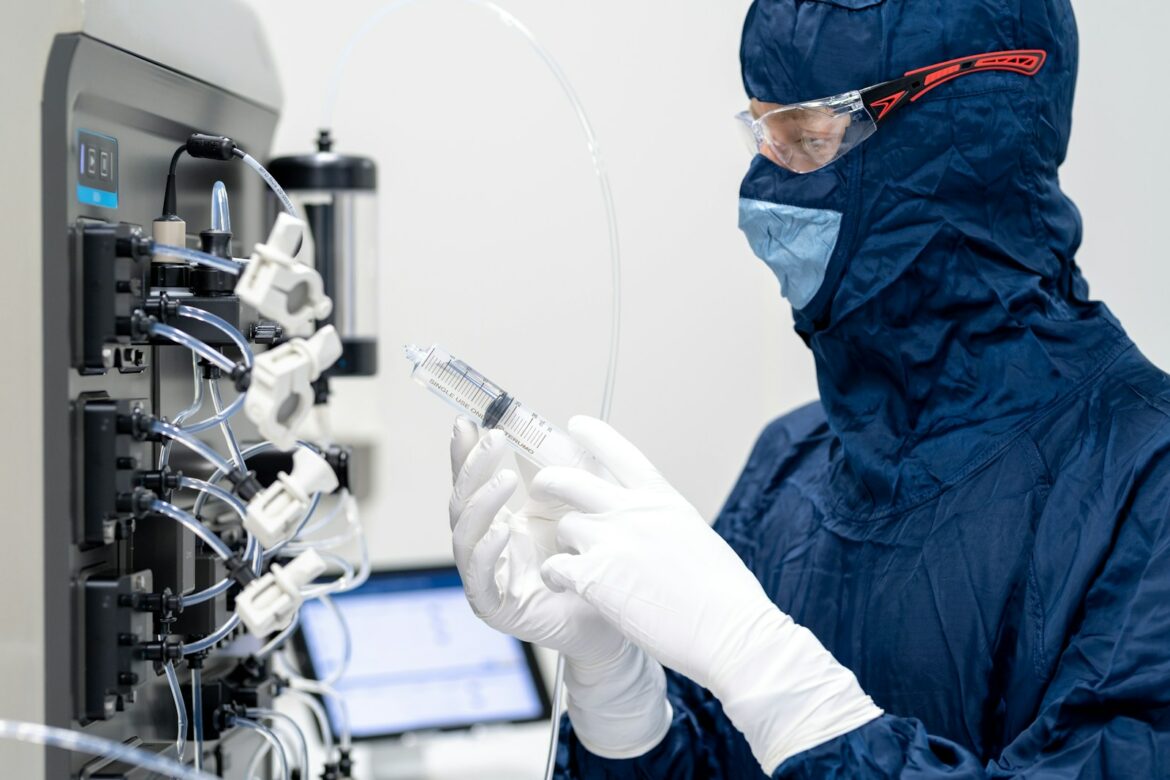The field of synthetic biology is experiencing a remarkable transformation, driven by advancements in technology and a growing demand for sustainable solutions. As the world grapples with challenges such as climate change, food security, and healthcare, synthetic biology startups are emerging as key players in the bio-manufacturing sector. This article explores the current boom in bio-manufacturing, the influx of growth capital into synthetic biology startups, and the implications for various industries.
Understanding Synthetic Biology
Synthetic biology is an interdisciplinary field that combines biology, engineering, and computer science to design and construct new biological parts, devices, and systems. It enables the creation of organisms with tailored functionalities, which can be applied in various sectors, including agriculture, pharmaceuticals, and energy.
Key Components of Synthetic Biology
- Genetic Engineering: Modifying the genetic material of organisms to produce desired traits.
- Metabolic Engineering: Optimizing metabolic pathways to enhance the production of specific compounds.
- Biomanufacturing: Using living organisms to produce valuable products, such as biofuels, bioplastics, and pharmaceuticals.
The Rise of Bio-Manufacturing Startups
The bio-manufacturing sector has witnessed a surge in startups leveraging synthetic biology to create innovative solutions. According to a report by Grand View Research, the global synthetic biology market is expected to reach $38.7 billion by 2027, growing at a CAGR of 28.6% from 2020 to 2027.
Factors Driving Growth
- Sustainability Concerns: Increasing awareness of environmental issues is pushing industries to seek sustainable alternatives.
- Technological Advancements: Innovations in gene editing technologies, such as CRISPR, have made synthetic biology more accessible.
- Investment Opportunities: Venture capitalists and investors are recognizing the potential of synthetic biology to disrupt traditional manufacturing processes.
Attracting Growth Capital
As the demand for bio-manufactured products rises, synthetic biology startups are attracting significant growth capital. In 2021 alone, investments in synthetic biology reached over $3 billion, a record high. This influx of capital is enabling startups to scale their operations and bring innovative products to market.
Notable Investment Trends
- Venture Capital: Firms like Andreessen Horowitz and Flagship Pioneering are actively investing in synthetic biology startups.
- Corporate Partnerships: Established companies are forming partnerships with startups to leverage their technologies and accelerate product development.
- Government Funding: Various governments are providing grants and funding programs to support research and development in synthetic biology.
Case Studies of Successful Startups
Several synthetic biology startups have successfully attracted growth capital and made significant strides in the bio-manufacturing space. Here are a few notable examples:
1. Ginkgo Bioworks
Founded in 2008, Ginkgo Bioworks specializes in designing custom microbes for various applications, including agriculture and pharmaceuticals. The company went public in 2021 through a SPAC merger, raising $425 million. Ginkgo's platform allows companies to develop and scale microbial production efficiently, making it a leader in the synthetic biology space.
2. Zymergen
Zymergen focuses on using machine learning and automation to optimize microbial production processes. The company raised $500 million in its IPO in 2021, highlighting investor confidence in its innovative approach to bio-manufacturing. Zymergen's products include bio-based materials for electronics and agriculture, showcasing the versatility of synthetic biology.
3. Amgen
While not a startup, Amgen's investment in synthetic biology demonstrates the potential of established companies to drive innovation. Amgen has invested in various synthetic biology initiatives, including partnerships with startups to develop biopharmaceuticals. This collaboration between established firms and startups is crucial for advancing the field.
Challenges Facing Synthetic Biology Startups
Despite the promising growth and investment opportunities, synthetic biology startups face several challenges:
- Regulatory Hurdles: Navigating the complex regulatory landscape can be time-consuming and costly.
- Public Perception: Concerns about genetic modification and synthetic organisms can hinder acceptance.
- Technical Limitations: Developing reliable and scalable production processes remains a significant challenge.
The Future of Bio-Manufacturing
The future of bio-manufacturing looks bright, with synthetic biology poised to revolutionize various industries. As technology continues to advance, we can expect:
- Increased Collaboration: More partnerships between startups and established companies to drive innovation.
- Diverse Applications: Expansion into new sectors, including textiles, food production, and renewable energy.
- Enhanced Sustainability: Development of bio-manufactured products that reduce environmental impact and reliance on fossil fuels.
Conclusion
The bio-manufacturing boom driven by synthetic biology startups is reshaping industries and attracting significant growth capital. With a focus on sustainability, technological advancements, and innovative solutions, these startups are well-positioned to address some of the world's most pressing challenges. As investment continues to flow into the sector, the potential for synthetic biology to transform manufacturing processes and create a more sustainable future is immense. The journey is just beginning, and the next few years will be critical in determining how synthetic biology will impact our lives and the planet.
